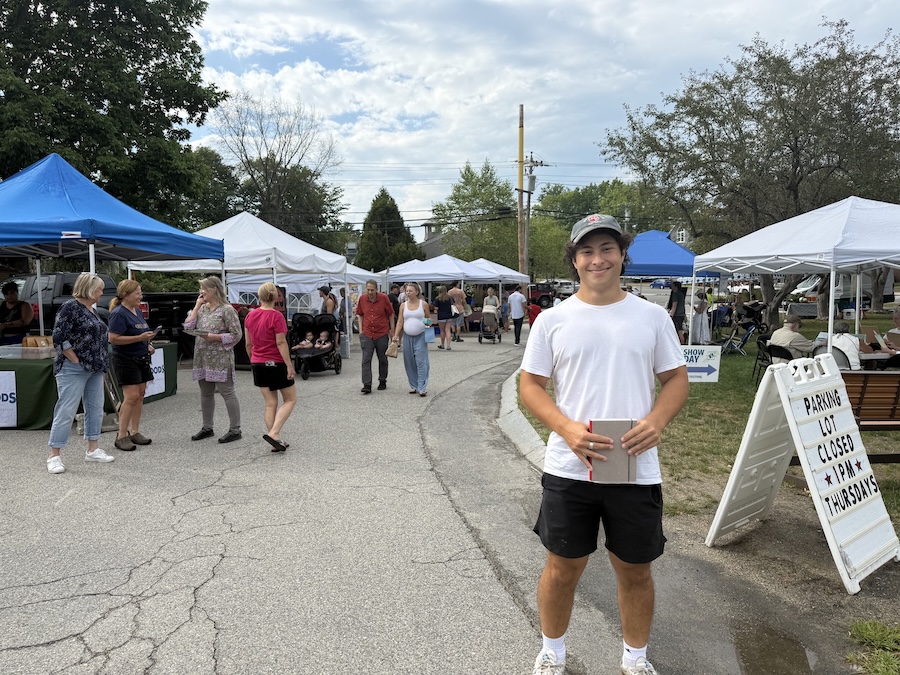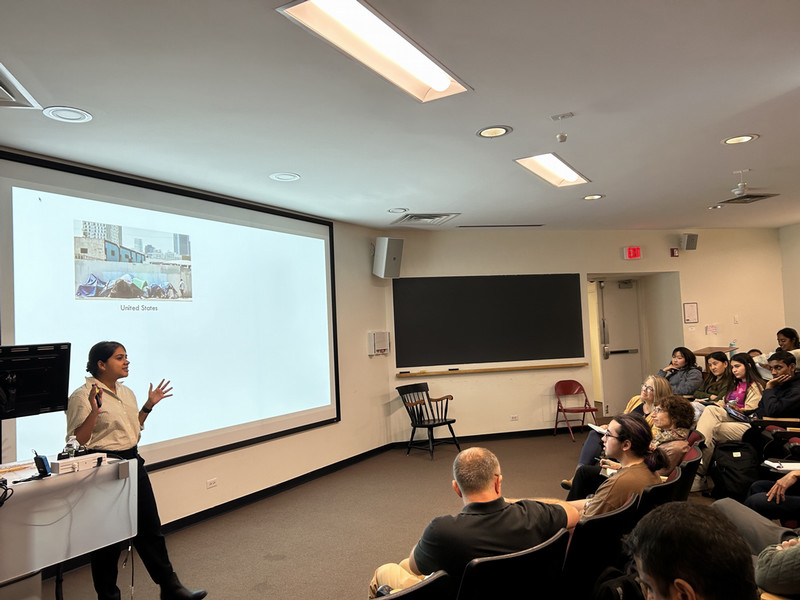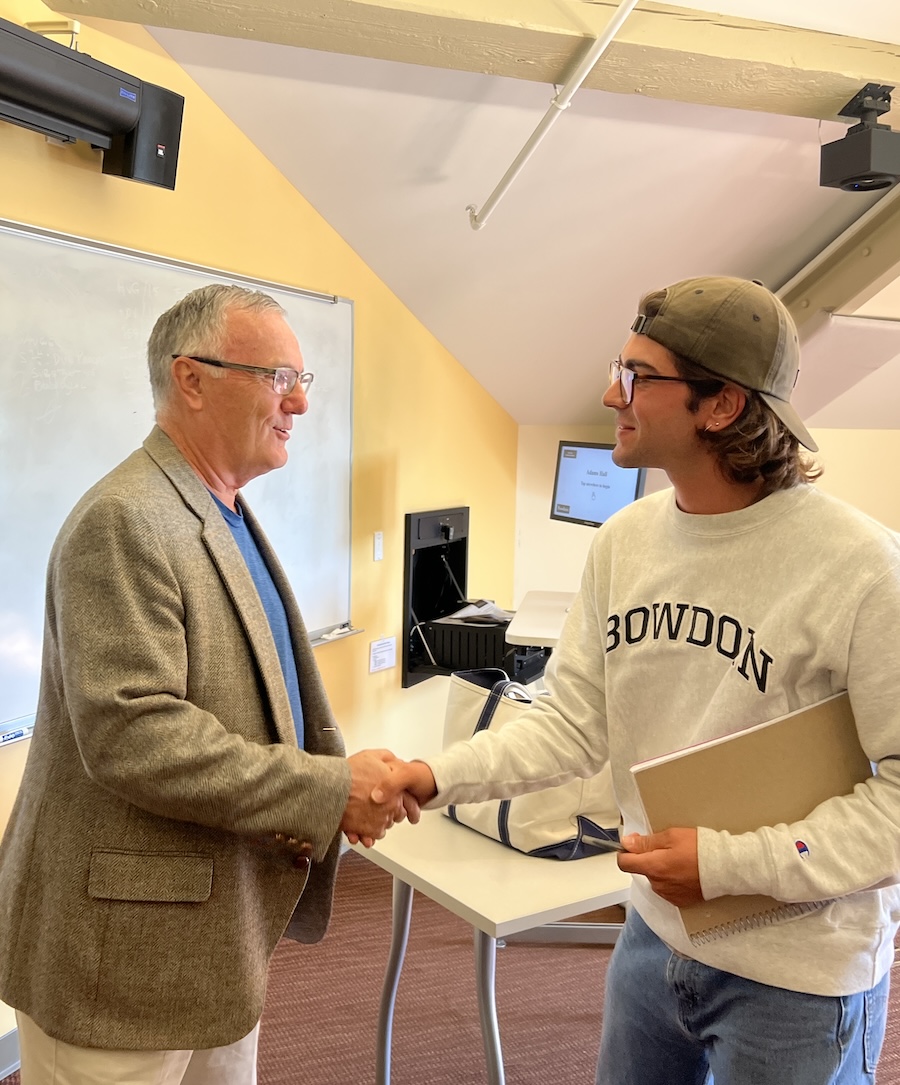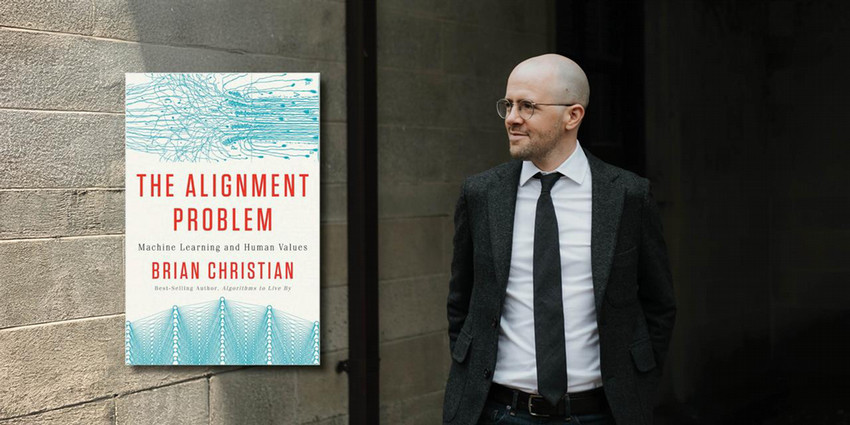Santagata Memorial Lecture: An Evening with Jonah Goldberg and Mara Liasson
By Rebecca Goldfine
Perhaps the most notable aspect of the event—which brought together a conservative pundit and a reporter from National Public Radio (NPR)—is that they found little to disagree on.
They both said they felt the race has been remarkably stable, with President Trump's base of 40 percent or so of the electorate remaining unmoved by changing events or Trump's norm-breaking behaviors. But while it's unmovable, it is also hard to expand—a problem for the President, they noted.
They also agreed that there was no obvious reason to think Supreme Court Justice Ruth Bader Ginsburg’s death and the fight to replace her would radically change the race. Though Liasson did acknowledge the possibility that it would allow Trump to shift the public's focus to the courts and away from COVID-19, the faltering economy, and racial unrest—something he is desperate to do.
And Liasson said Ginsburg's death could mobilize young women to vote, while Goldberg mentioned the possibility that some conservatives might be less eager to reelect Trump once their dream of a conservative-majority Supreme Court had been achieved (assuming Trump’s nominee is confirmed before the election). Goldberg also noted that talk of “before the election” and “election day” are misleading this year, since voters in many states—including Trump himself—have already begun mailing in ballots.
Liasson and Goldberg weighed in on the reelection campaign of Senator Susan Collins in Maine, who trails in the polls. As with the presidential bid, they saw no benefit for her in the coming tussle over the Supreme Court. More broadly, they both felt that Collins has struggled in recent years to seem relevant or effective in a Congress that has become both partisan and passive, repeatedly deferring to the President and the courts regarding major issues of the day.
Elaborating on that point, the two asserted that the future of a thriving American democracy depends on Congress taking up its responsibilities by making laws and establishing policy—and then being held accountable to the outcomes. This is something our legislators have been reluctant to do for too long, they argued. They suggested that eliminating the Senate filibuster rule, a controversial idea that has been recently discussed, might allow Congress to pass more legislation and be held responsible for policy decisions.
But the speakers did not agree on everything. Liasson noted that, if the electoral college system continues to allow presidents to be elected while losing the popular vote, the result could be a crisis of legitimacy. Goldberg defended the electoral college, and said he thought the pattern of recent elections could and should require political adjustments by the Democrats.
Below are a few notable quotes from the wide-ranging discussion. (These have been lightly edited for brevity's sake.)
On the Republican Party coalition:
Liasson: "The Republican Party has ceased to be a coalition party. And politics in America is most stable and productive when both parties are coalitions. The coalition that used to be the Republican Party coalition was dealt a mortal blow in 2018, when the connection among white, rural, and non-college-educated voters, suburban voters, and evangelicals was broken."
On negative partisanship:
Goldberg: "The person who is going to galvanize Biden's base is Donald Trump. Negative partisanship or negative polarization is the defining feature of our politics these days. Negative polarization is the idea that there are millions of Republicans who vote Republican because they hate Democrats, and millions of Democrats who vote Democratic because they hate Republicans. Strict partisans actually don't like their own parties that much—they just hate the other party more."
On Trump's campaign strategy:
Liasson: "Donald Trump believes in the politics of division, not addition. His strategy has been described as a strategy of death: to dig down deeper and find more people who look exactly like his base voters—white non-college-educated and evangelicals who didn't vote in 2016—and try to get them to turn out."
Goldberg: There are enormous numbers of non-voters out there who are white and non-college-educated, and if you can scoop deeper into that reserve army of voters who don't show up in polls or don't show up in most models of the electorate—that enthusiasm factor could be an advantage for Trump. It just depends where they are, in what states, and whether the Trump campaign can get them to the polls."
Liasson: "They happen to live in places that matter—Wisconsin, Michigan, and Pennsylvania—and they happen to be 57 to 60 percent of the electorate there. That is how Trump got elected in the first place. This time we're led to believe that Trump has sophisticated data-mining tools to go find them. They do live in the same conservative media ecosphere, so he should be able to find them, but polls don't indicate that he is."
On how Trump could win:
Liasson: "He will have convinced people the pandemic is in the rearview mirror, and that he's the best guy to pick up the economy right where he left off. That Biden is weak and a Trojan horse for the left. Plus, it's hard to defeat an incumbent. And it would prove that a lot of the polls are simply wrong."
Goldberg: "I think that the other part of it is that a lot of people have priced in Donald Trump's behavior and the reality-show-ness of it. It's like a soap opera where you hate some of the characters, but you love to hate them....You can see a lot of voters saying 'this is the new normal and I kind of think it's funny.' That's a terrifying possibility, but it is part of Trump's advantage that we no longer freak out that he tweets like an escaped monkey from a cocaine study. That has steeped into the culture a great deal, and that reality-show feel could get him reelected."
On the electoral college:
Liasson: "The debate on minority rule is huge and will get huger. It's about the president who hasn't got the popular vote, it's about fifty-three senators representing fewer than fifty percent of the population (most of which is white). That is a big debate we will have for years....There is a limit to how often we can have an electoral college split from the popular vote."
Goldberg: "The electoral college is not rigged against Democrats. I'm a defender of the electoral college. The phrase you hear a lot is that it is rigged and national gerrymandering. First of all, Barack Obama won the electoral college handily, twice. People talk about it being a long-standing trend of locking out urban and minority voters....But, as recently as 2016, most Democracts were boasting about their blue wall in the electoral college and how it almost guaranteed them victory in presidential races. The second it worked against them, they talked about how it was this anachronistic vestige to uphold slavery. It's a very weird thing to say that this pro-slavery mechanism was something you were bragging about three years ago."
Congress and strong democratic institutions:
Goldberg: "The big-picture problem with the legislative branch is that our Founding Fathers never imagined that it would not be a jealous guardian of its rights, responsibilities, and prerogatives. And for close to seventy years, Congress—which is the first branch, the supreme branch—it writes laws, raises taxes, declares war, and fires members of other branches—has doled out its power and responsibity to other branches."
Liasson: "If Democrats get rid of the filibuster, that will introduce a kind of parliamentary system into Congress. In other words, the party that wins the majority would be able to pass its program and would be accountable for whether that program works or not.
Goldberg: "That kind of accountability is healthy in a democracy....Giving one party or another the power to do what they say they want to do creates consequences."
Liasson: "The theme that runs through this discussion is how all these democratic intuitions (that) we need to be strong and functioning are kind of withered: Congress has abdicated, the parties aren't strong and are shells of their former selves...We need a civic revival in this country, and we can start with K-12 education, so people understand what these institutors are supposed to do. It took a long time for us to get here; Trump accelerated the process...and that is why we're at where we're at, with polarization tearing us apart and people not willing to compromise."
Media:
Liasson: "The joke is that Fox and MSNBC don't even cover the same natural disaster. The media is as polarized as any other part of American society."
Goldberg: "One of the reasons I think right-wing and left-wing media, including a lot of mainstream media, are partisan is because the parties have become so weak, so emaciated, so hollowed out, that a large swath of mainstream media, progressive and conservative media, have taken up the baton and are doing party work by proxy."



